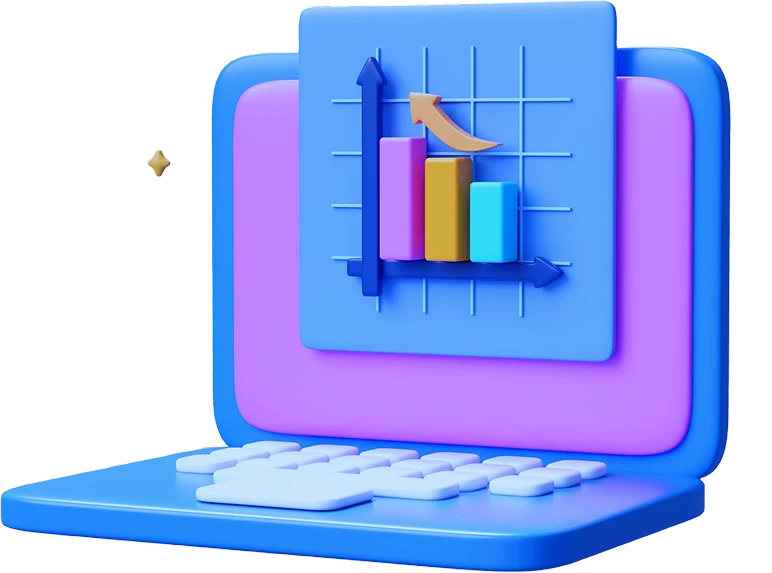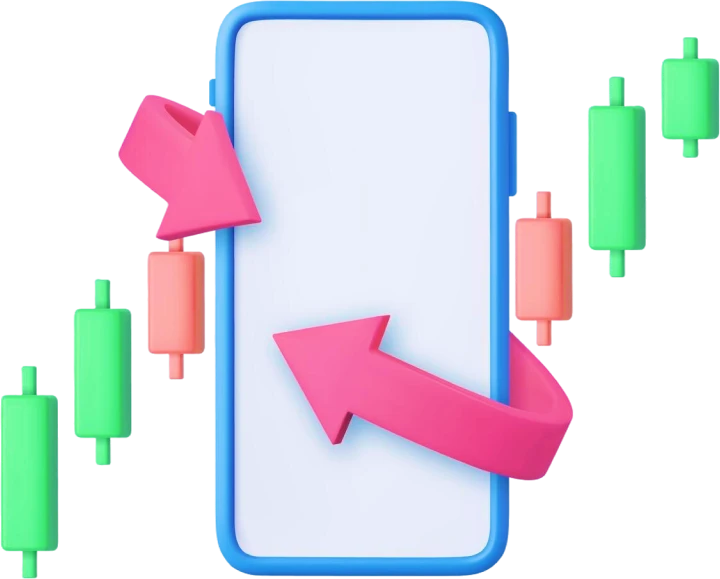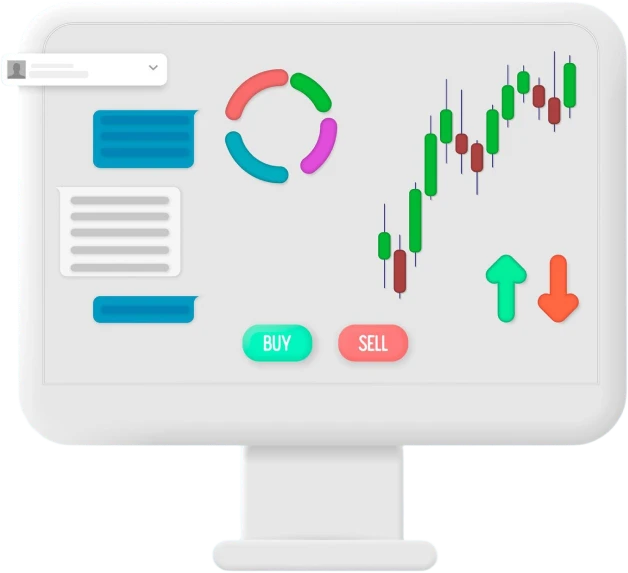Immediate Edge
Trade Cryptocurrency On Immediate Edge


Only recently, many traders are finding it difficult to trade in the cryptocurrency market. The landscape has an overwhelming number of tasks that require skill and knowledge to process. Also, the price of crypto keeps fluctuating, making it difficult for anyone to make informed decisions. Let us introduce Immediate Edge.
Immediate Edge is a platform that has been designed to change the narrative of the average trader in the crypto market. We offer them an opportunity to use AI in their everyday trading activities. This offer is designed for everyone: those with prior experience in crypto and those looking to begin.
We built our platform to make trading endeavors seamless and smart. Now, traders can explore countless datasets, using the power of AI to process, analyze, and generate insights. Immediate Edge also has machine learning technology that helps predict patterns. Sign up on Immediate Edge to get started.

This is a new concept in the financial market. It is also known as algorithmic or algo trading. AI trading is the use of pre-trained computer software or systems to navigate the financial space. Historical data and strategies are used to train these systems. This makes them carry out trades objectively.

The financial market is a terrain, and crypto is a wild beast. What we are offering at Immediate Edge is just what may help any struggling trader. Utilize the potential of AI and machine learning technology as a trader to experience crypto much more seamlessly. Sign up on Immediate Edge to learn how.

Exploring the crypto market for the first time can be scary, we understand. But get this: every trader in today’s market has gone through this phase. However, Immediate Edge brings ease to this journey. Our set of AI tools is tailored to help anyone learn and trade on the go. Sign up on Immediate Edge to get on this.
At Immediate Edge, we encourage traders to do their due diligence to acquire skills and knowledge. Learn how to read into data fast and make time-sensitive decisions. But more than that, Immediate Edge is offering an opportunity to merge this experience with the precision of AI. Sign up on Immediate Edge on begin.

Our platform is designed to make crypto trading simple for everyone. As a deliberate exchange platform, Immediate Edge is designed with an easy user interface. We layered all the necessary tools in clear positions. All the end users can maximize our platform and explore the crypto market. Sign up on Immediate Edge to reimagine crypto trading.
Our platform wants to offer the average trader all the resources they need. This includes the most important - real-time market data. Having this within reach is of utmost importance for anyone looking to make informed decisions. With it, they can monitor market conditions and speculate on opportunities to take. Sign up on Immediate Edge to find out more.
Recently, we’ve developed a new feature called Copy Trading. This allows traders to execute decisions using expert templates. This is especially true for those with no prior experience with crypto or those struggling. Immediate Edge provides this feature to help them adapt to the crypto space.
On Immediate Edge, we want to see traders suitably channel their efforts. This is why we developed a bot system that helps them navigate crypto-trading easily. No one trading can be in several places at one time; these bots can. Sign up to use these amazing bots on Immediate Edge.
Every trader needs to learn how to use market data decisively. And when hard work can’t cut it, Immediate Edge is here to help. Our platform has an in-built technology that can manage and process market data. No one should depend on weak speculations any more. Harness AI on Immediate Edge to make smarter decisions.
The issue of security is one of many concerns of traders in the financial market. Immediate Edge is up to the task. When we developed our platform, we took measures with high-end encryption systems. These are designed to secure and protect user data from potential cyber threats and attacks.
Immediate Edge is a global platform. We designed it to be used by traders in many different countries. This is why we developed a multilingual system that is compatible with any language worldwide. Immediate Edge believes this would help bridge the language gap and open up smart crypto trading to more people.
The aim of crypto is to facilitate financial exchange across borders quickly and with ease. Immediate Edge shares this vision. This is why we made Immediate Edge borderless. What this means is that traders anywhere in the world, including those in restricted regions, can access our platform. Sign up on Immediate Edge to learn more about us.
This is where private individuals, businesses, and government institutions come to buy, sell, and exchange financial assets. These assets include stocks, bonds, foreign exchange, commodities, and cryptocurrencies. In the financial market, they are used by traders or investors to pursue set financial goals.
The financial market is important in any economy. It serves as an avenue where capital and opportunities are provided for individual or public development. Capital is regulated and distributed transparently to businesses, entrepreneurs, or government projects in need.
Traditional financial markets have central authorities. These are the Central banks and the Security and Economic Commission (SEC). They provide access to financial resources in a regulated manner. The financial market is affected by factors such as interest rates, inflation, and economic policies. Sign up on Immediate Edge to learn more.

This is one type of financial asset introduced in the past decade. Cryptocurrencies are digital assets secured by cryptography designed to be decentralized. Since its introduction in 2008, crypto has brought a more secure and transparent style to the financial landscape.
The best thing about cryptocurrency is its decentralized nature. Unlike other financial assets, crypto is not controlled or regulated by any banks, government authorities, or the central bank. This makes it easy for traders in this market to make transactions without the need for third-party bank systems. Immediate Edge outlines the most popular cryptocurrencies used by traders today:

This is the first cryptocurrency. Bitcoin is a digital currency that allows traders to buy, sell, and exchange without the need for banks or third-party regulators. It operates in a blockchain that secures payment sent and received. Sign up on Immediate Edge to learn more.
This is a smart contract platform. Unlike Bitcoin, Ethereum allows traders to carry out private contracts on a blockchain network. ETH has introduced many brilliant initiatives into the financial market, like Nfts and Web3 games, among others. Learn more on Immediate Edge.
This is a new type of cryptocurrency introduced in 2020 as a highly efficient blockchain network. Solana was designed to make fast transactions with low fee requirements. Its high-efficiency mechanism makes it more suitable for NFTs and decentralized finance (De-Fi) than ETH. Sign up for Immediate Edge to learn how Solana works.
This is a cryptocurrency that is paired with a stable currency like the US dollar. Tether was designed as a stablecoin to hedge against volatile price movements in the cryptocurrency market. Sign up on Immediate Edge to learn about more cryptocurrencies.
Digital currency was not a thing until 1983. This was when American cryptographer David Chaum developed a type of electronic cash called eCash. This was designed to secure transactions between two people in a safe and private manner. This began a long chain that led to many innovations.
In 1995, Chaum used the ideas of eCash to develop Digcash. This allowed users to withdraw cash from the bank using software. Then, an encrypted key was required to be sent to a recipient. By 1998, b-money was introduced, after which bit gold was invented. These were electronic forms of cash that required proof of work (POW) consensus.
By the year 2009, Bitcoin was invented by a developer going by the pseudonym Satoshi Nakamoto. It was described as a peer-to-peer electronic cash system. The first time Bitcoin was used for payment was in 2010. 10,000 BTC was exchanged for two pizzas. Since then, cryptos have come a long way, reaching a valuation of over 2 trillion USD in 2024.

In the crypto market, assets are stored in a digital wallet. This serves as a medium for traders to access their crypto assets in any blockchain network. Crypto wallets can be divided into cold or hot wallets. They both work differently and for several purposes.
Generally, hot wallets operate when connected to the internet. This makes them most suitable for fast transactions. Cold wallets, on the other hand, work without any internet connection. They commonly come in the form of a hard drive or paper-printed wallet.
A defining advantage for hot wallet users is transaction convenience. One can easily send, receive, and trade crypto at a go. While cold wallets can’t do this, their advantage is their security and safety. Hot wallets are suitable for day traders, and cold wallets are for long-term traders. Sign up on Immediate Edge to learn more.

Cryptocurrency is new and evolving in the financial market. The popularity of its use has raised questions for financial regulators worldwide, especially the Security and Economic Commission (SEC). These questions surround its wild use in making financial transactions and its volatile cost and nature.
In 2023, the SEC made a deliberate attempt to section 26 cryptocurrencies. The many bankruptcy cases in 2024, like FTX and BlockFi, among others, only made matters worse. According to the SEC, the cryptocurrency market is flooded with tons of manipulation and fraudulent activities. And they aim to curb it.
This move by the SEC has been critiqued by experts in the crypto industry. However, according to the SEC, they believe traders are trading traditional assets and thus need to be registered under them. The goal is to eliminate or reduce crypto’s freedom and disclose any form of fraud within the space. Sign up on Immediate Edge to learn more.

Cryptocurrency offers lots of opportunities for traders in the financial market, but it also comes with its risks. In fact, crypto is known to be one of the most volatile of all other financial assets. But what is the risk? These are factors that have the potential to cause a negative outcome on a trade or investment.
In the crypto market, its volatile nature or risk-causing factors can be attributed to market conditions, demands, political events, or price movements. These can lead to significant losses to traders within the slightest minute. Knowing risk isn’t about staying away from trading; instead, it means being aware and generating means to mitigate them. Sign up on Immediate Edge to learn more.

This is the extent to which the price of an asset fluctuates. In a landscape as volatile as crypto, price is highly dynamic. This can cause traders to lose capital investment or even crash the overall market. Sign up on Immediate Edge to understand in-depth.
This is a determining factor in how seamlessly an asset can be exchanged. Let us define it as the ease with which a trader can buy or sell any crypto asset. When liquidity is high, transactions can be suitably executed. However, when liquidity is low, traders are prone to slippage and higher fees. Immediate Edge’s AI keeps an eye on liquidity, and users can act accordingly.
Political risk is a different type of risk when any change in a political region could affect financial activities. It affects cryptocurrency a lot because many governments today struggle to comprehend it. Therefore, many refuse to legalize its use, restricting traders in that region. Immediate Edge’s AI reports on regulatory changes to inform the user’s decisions.
The crypto market is a digital landscape. This means all the activities a trader does is online or on a digital framework. This makes it vulnerable to certain security risks. Security risks include cyber-attacks, fraud, and hackers. These can access user assets and information for malicious activities. As stated earlier, Immediate Edge is built with robust security features to protect user data.
We know how challenging being a trader is. There are so many tasks to get by each day, and making informed decisions still seems impossible. How about trusting Immediate Edge to help? Our platform has been designed to help traders worldwide in all their endeavors in the markets.
This opportunity with Immediate Edge is an offer to merge AI-driven tools with one’s experience. We want to help traders navigate the landscape seamlessly and much easier. With these tools, anyone can make quick analyses, generate insights, and make decisions that are well-informed. Sign up on Immediate Edge to get started.

Our platform is a crypto exchange that helps anyone trade with AI on the side. We aim to make the trading experience much easier and less challenging for traders worldwide.
Yes! Immediate Edge is designed for anyone who is looking to make informed investment decisions. We believe our set of AI-driven tools is enough to help anyone navigate the crypto market.
Immediate Edge is available on all types of devices. IOS, laptop, android, and tablet. Our platform is deliberate about our user’s comfort and convenience. Sign up to use Immediate Edge.
| 🤖 Cost to Join | Sign up at no cost |
| 💰 Service Fees | Absolutely no charges |
| 📋 Enrollment Process | Quick and easy sign-up process |
| 📊 Learning Areas | Training on Crypto, FX Trading, Equity Funds, and More |
| 🌎 Regions Served | Serviceable in almost all nations but not in the USA |